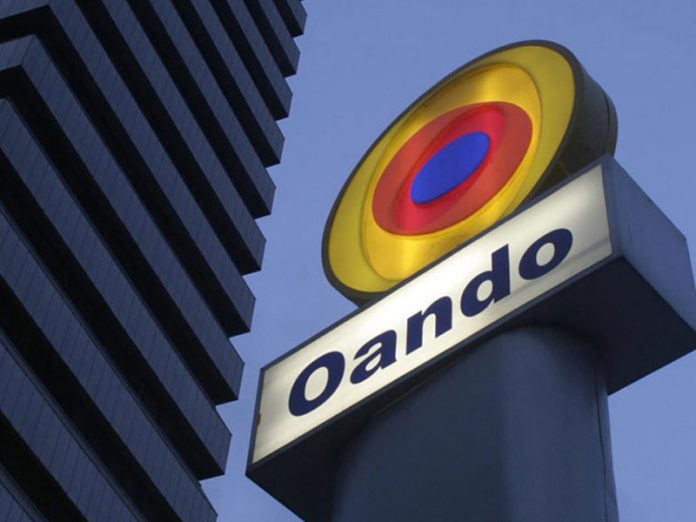Last year, Oando Plc celebrated 30 years of phenomenal growth in the Nigerian oil industry, setting the stage for its future. As the company is set to unveil its plan for the next journey, analysts believe that under Jubril Adewale Tinubu’s visionary leadership, Oando PLC is set to redefine Africa’s energy landscape, evolving from an oil giant into a global force driving sustainability, innovation, and prosperity over the next two decades, writes Festus Akanbi
In compiling the recent landmark developments in the Nigerian business scenes, one story that cannot be waived aside is that of the phenomenal growth of the only indigenous oil giant in Nigeria, Oando Plc.
Analysts have described the organisation as the pride of Africa. By solidifying its eminent position in the Nigerian oil industry, it is winning more ground and breaking barriers.
It was this landmark that signposted the 30th anniversary of the company which was marked with pomp and ceremony at the tail end of 2024.
The truth is that Oando continued to turn the corner in terms of profitability which it recorded in 2023 and 2024, and which has spurred a series of decisions that have rewarded shareholders and employees for their loyalty, resilience, and steadfastness.
It was this chain of achievements that formed the theme of the celebration called ‘Symphony of Success,’ described as a grand celebration of Oando’s journey from a small oil trading business to a multi-billion-dollar energy giant.
In writing about Oando’s rise to the pinnacle of the Nigerian oil industry, one cannot but talk about its Group Chief Executive Officer, Mr. Wale Tinubu, whose transformative leadership has been the cornerstone of Oando’s meteoric rise from a modest oil marketing firm to a continental energy powerhouse.
With unparalleled vision and audacious strategy, he orchestrated landmark acquisitions, such as Agip Nigeria and ConocoPhillips’ Nigerian assets, securing Oando’s dominance in upstream oil exploration and production. His relentless drive for diversification integrated the company’s operations across the energy value chain, while bold investments in natural gas infrastructure positioned Oando as a critical player in Africa’s energy transition.
Tinubu’s mastery of complex financial engineering and commitment to sustainability has not only ensured the company’s resilience amidst volatile markets but also redefined it as a symbol of African excellence on the global stage. Under his stewardship, Oando has become a beacon of innovation, ambition, and enduring success.
Having marked its 30th anniversary to the admiration of its stakeholders, the question one is tempted to ask is can this rising organisation maintain this trajectory in the next 20 years?
Analysts explained that the future of Oando PLC shimmers like a sunrise over Africa’s boundless horizons, brimming with promise and transformation.
They argued that over the next two decades, the company stands poised to transcend its legacy, evolving into a titan of sustainable energy that marries innovation with impact.
According to industry analysts, like a river carving new paths, Oando will channel its ingenuity into harnessing the sun, wind, and earth’s latent power, becoming a vanguard of Africa’s green revolution.
“Its reach will extend beyond Nigeria’s borders, weaving a network of energy solutions that electrify industries, empower communities, and ignite dreams across the continent. Anchored by a bold commitment to environmental stewardship and guided by technological brilliance, Oando’s journey will be one of resilience and reinvention. It will not merely adapt to a changing world but shape it, standing tall as a beacon of progress, a harbinger of hope, and a testament to the indomitable spirit of Africa.
A Profitable Performance in 2024
To Oando, Nigeria’s leading indigenous energy group listed on both the Nigerian and Johannesburg Stock Exchanges, the proof of the pudding is in the eating as it ended last year on a spectacular note when it released its nine-month performance results.
As a consolidation of its impressive showing in 2023, Oando Plc’s nine-month results showed a 36 per cent increase in revenue, as it declared N3.2trillion for the period in 2024 as against N2.3 trillion posted in the corresponding period of 2023.
Operating Profit for the period declined by 23%, primarily driven by an increase in administrative expenses mainly due to foreign exchange losses from the revaluation of payables and borrowings.
Profit-after-tax for the period was N76.3 billion, a decline of 31% from N110.2 billion in the same period of 2023, driven by foreign exchange losses and net finance costs.
The performance was also affected by the rising cases of pipeline vandalism and theft in the Niger Delta.
The positive performance, according to Tinubu is a testament to the company’s resilience amidst a challenging environment. He said: “Our performance for the nine months ended September 30, 2024, reflects our resilience and unwavering focus on delivering value amidst a challenging operating environment. We achieved a 36% increase in revenue to N3.2 trillion and a Profit After Tax of N76.3 billion, despite ongoing pipeline vandalism, sabotage, theft in the Niger Delta, and foreign exchange volatility.
“Since the acquisition of NAOC, we have increased production by 40%, growing from 22,000 boepd pre-acquisition to 30,675 boepd currently. This progress has been driven by the deployment of quick-win strategies that have enhanced operational efficiencies and demonstrated the transformative potential of the acquisition.
“The integration process is advancing smoothly, and our immediate focus remains on executing strategic initiatives to maximise the value of our expanded portfolio. With this stronger foundation and a clear roadmap for growth, we are confident in our ability to deliver long-term, sustainable value to all stakeholders.”
Looking at the figures reeled out by the company, the operating environment was unfavourable, but with a tested hand like Tinubu on the saddle, Oando Plc was able to weather the tide and set an audacious target for the company in the new year.
During the nine months ended September 30, 2024, the average production was 20,560 boe/day, compared to 21,529 boe/day in 2023. In 2024, production consisted of 6,525 bbls/day of crude oil, 254 bbl/day of NGLs, and 13,782 boe/day of natural gas. Production decrease was a result of increased shut-in wells for repairs from sabotage and theft-related activities.
No Going Back on Development of Oil, Gas Infrastructure
Despite the challenging environment, Oando’s management did not just fold its hands as it continued the development of oil and gas assets and exploration activities. According to its financial statement, during the nine months to September 30, 2024, the Group incurred $12.7 million in capital expenditure related to the development of oil and gas assets and exploration and evaluation activities, compared to $47.4 million in the nine months to September 30, 2023.
Oando has been able to build the largest indigenous integrated energy company in Sub-Saharan Africa.
These comprised Oando Marketing Limited, one of the largest downstream petroleum marketing companies in Nigeria with over 500 retail outlets across Nigeria, Ghana, and Togo. There’s also Oando Supply and Trading Limited, incorporated in 2004, one of the largest independent traders of crude and refined petroleum products in sub-Saharan Africa.
Besides, Oando Gas & Power Limited, incorporated in 2004, is a pioneer in the development of Nigeria’s foremost gas distribution network, spanning 264 km and serving over 150 industrial and commercial customers in Lagos, Calabar, and Port Harcourt. Oando Energy Services Limited, incorporated in 2005, is Nigeria’s largest indigenous oilfield services provider, enhancing indigenous participation with a fleet of five rigs, while Oando Energy Resources is regarded as one of Nigeria’s foremost indigenous upstream oil and gas companies.
Give it to the company’s chief executive, over the years, he has demonstrated expertise in structuring complex financing deals, often involving partnerships with global institutions, to fund Oando’s growth.
His financial acumen ensured the company remained competitive despite Nigeria’s challenging business environment.
The company also focuses on gas to power in the quest to make Nigeria environmentally friendly. Oando has invested heavily in natural gas infrastructure, becoming a key player in Nigeria’s domestic gas market. This move aligns with the global energy transition and positions the company as a contributor to Nigeria’s energy security.
Talking about the future of Oando, observers said with the global push for decarbonisation, Oando is likely to increase investments in renewable energy sources like solar, wind, and green hydrogen. The company could evolve into a leading player in Africa’s clean energy transition.
Oando may also expand its operations beyond West Africa, leveraging its experience to tap into opportunities in other emerging markets. One also expects the company to focus on digital transformation with increased technology adoption, such as AI, IoT, and blockchain, which could optimize operations, improve efficiency, and enhance customer experiences.
Culled from Thisday.

 Trending News4 years ago
Trending News4 years ago
 Others3 years ago
Others3 years ago
 Humanity3 years ago
Humanity3 years ago
 Others5 years ago
Others5 years ago
 Business10 months ago
Business10 months ago
 Business5 months ago
Business5 months ago





